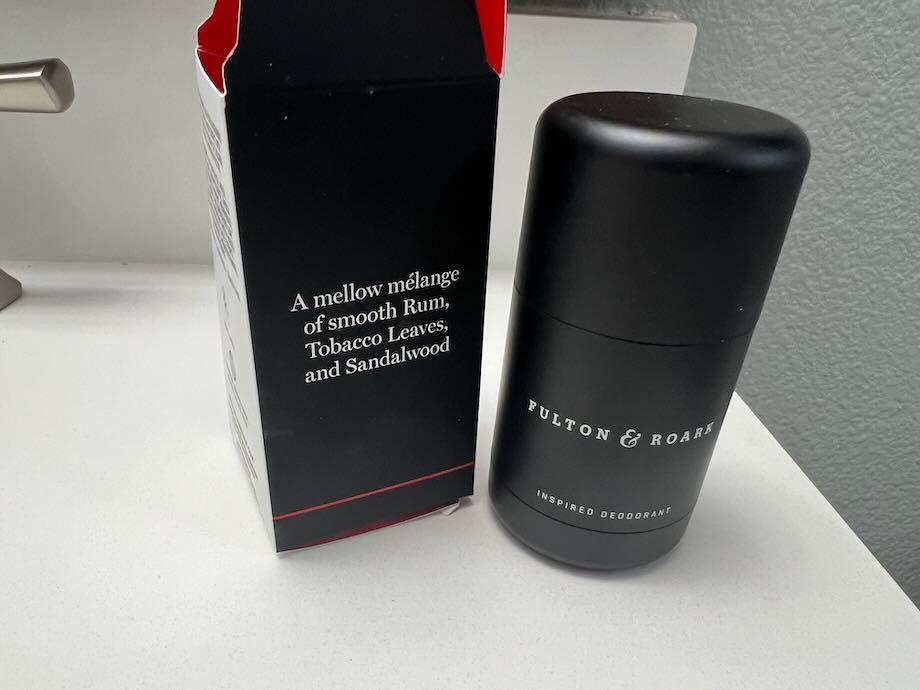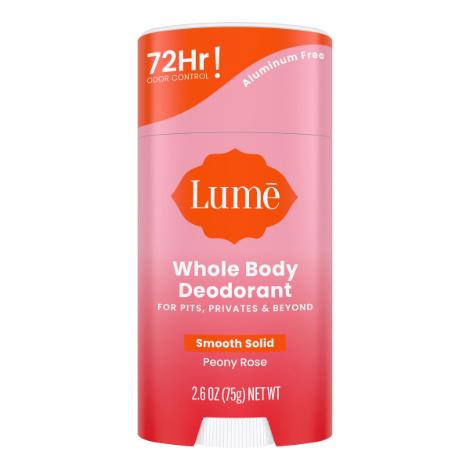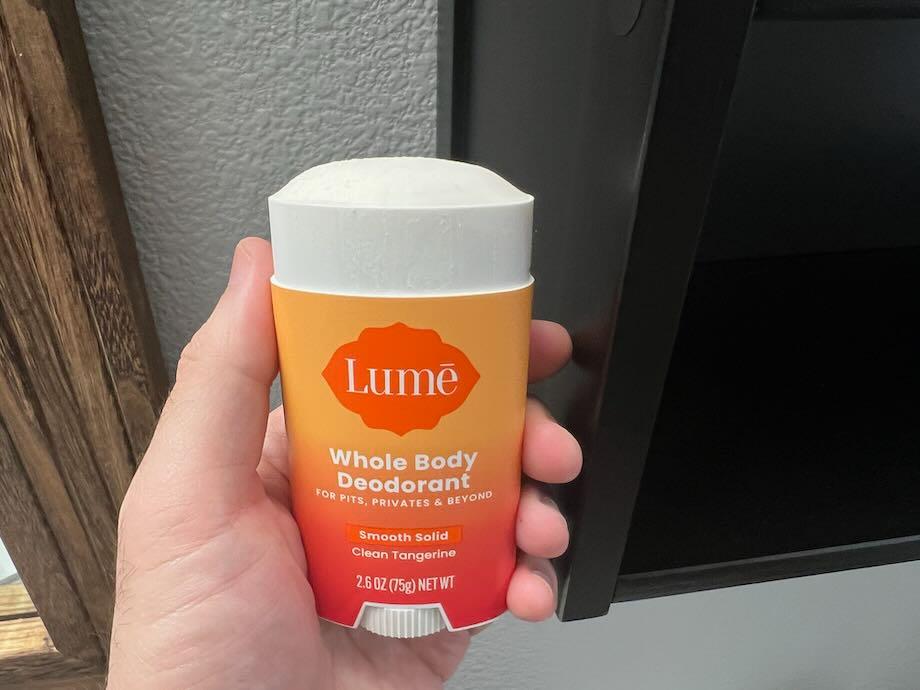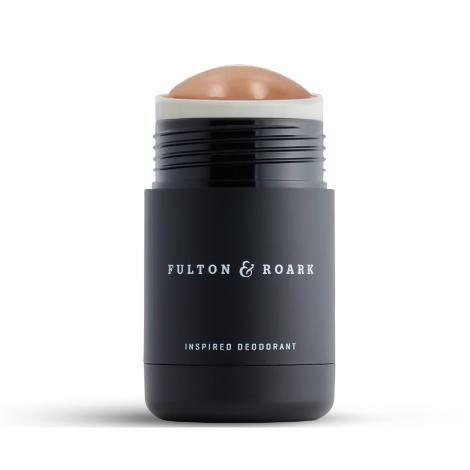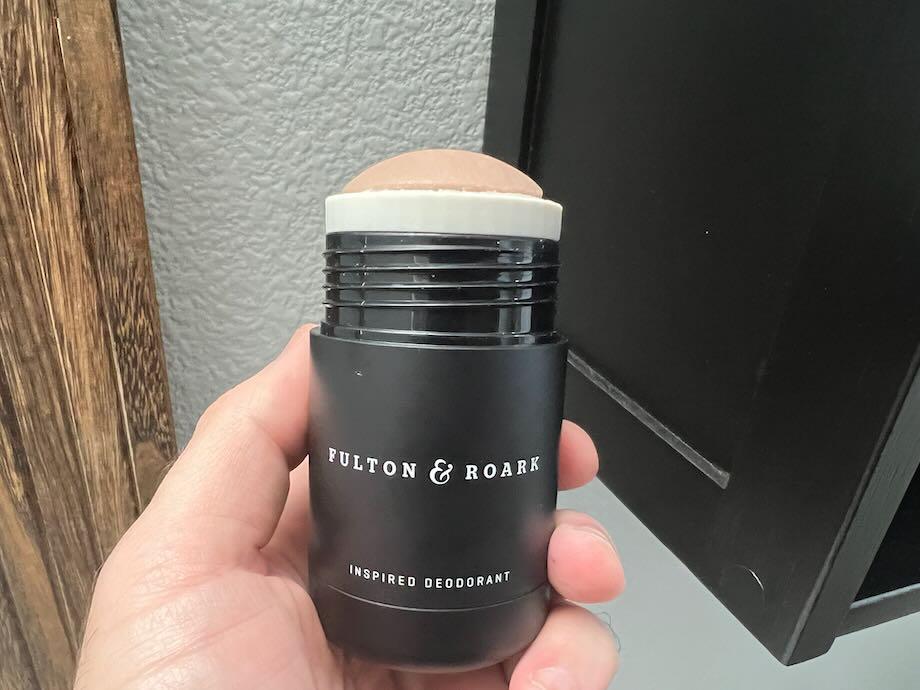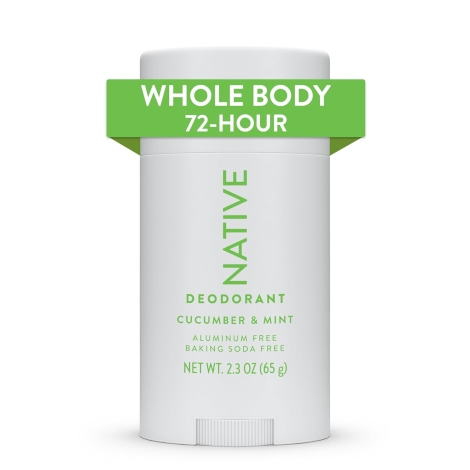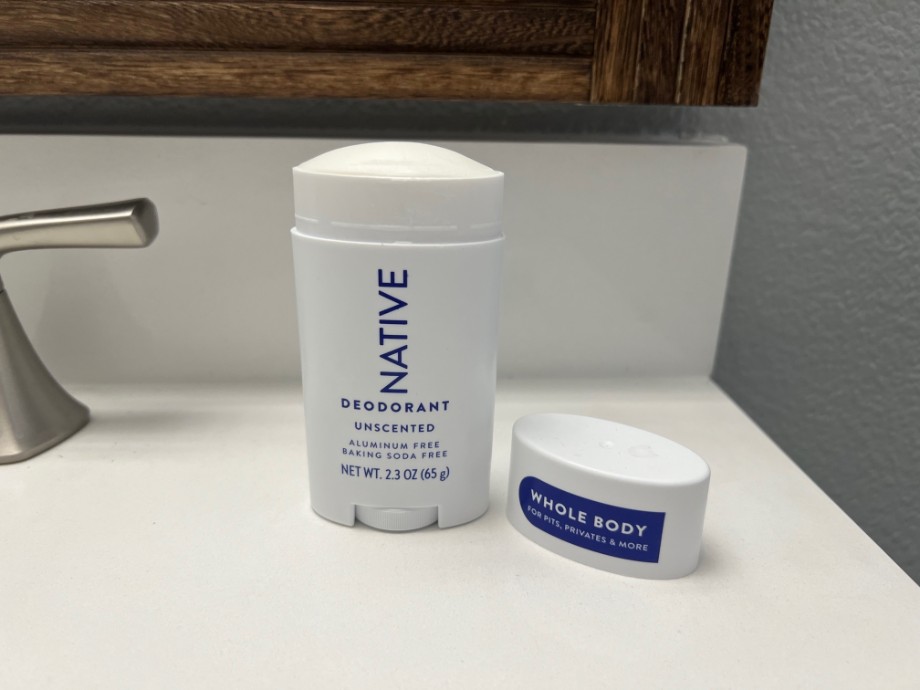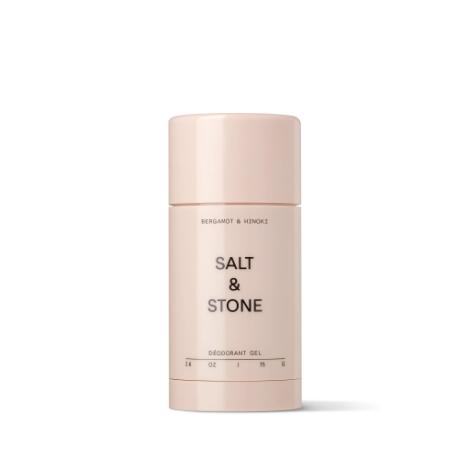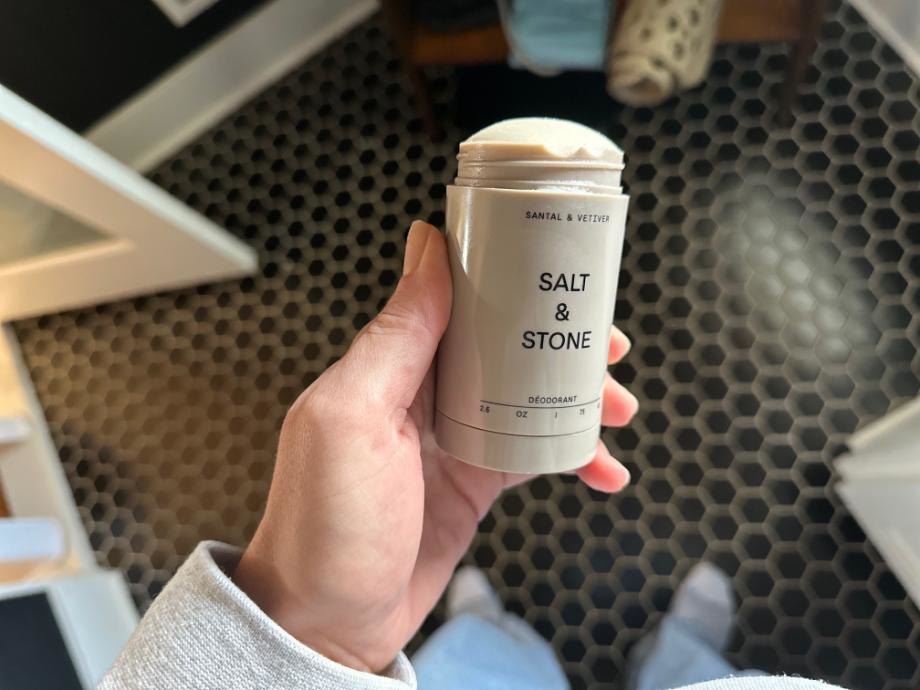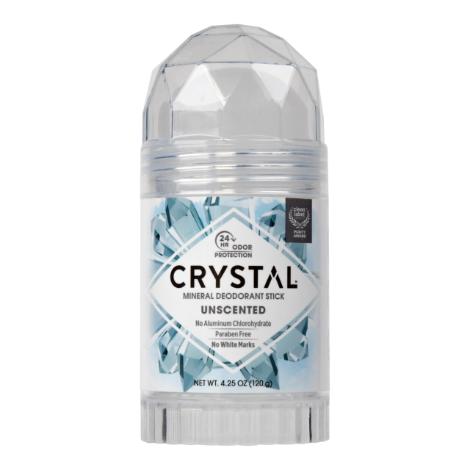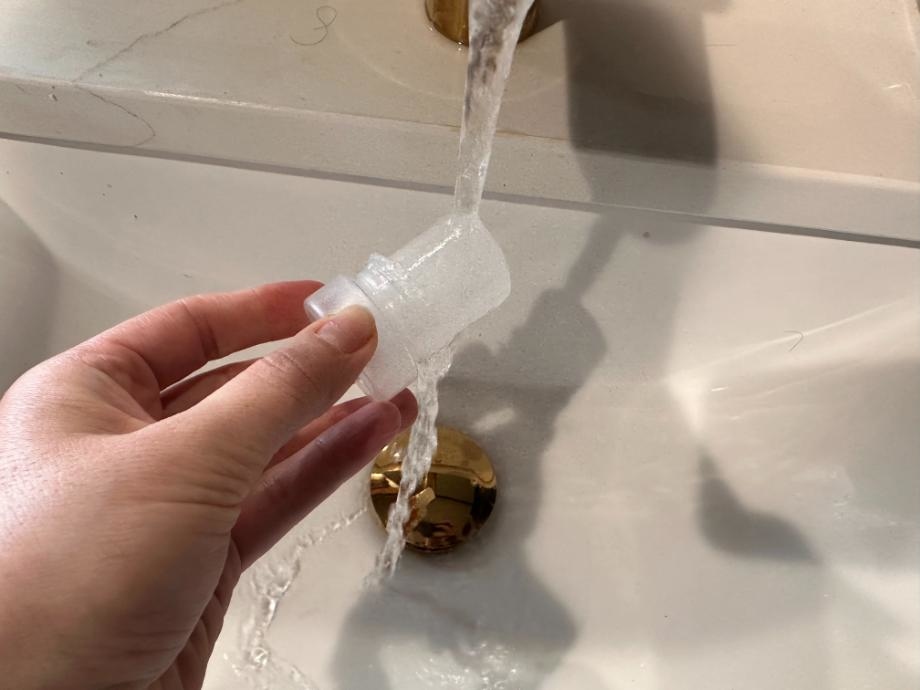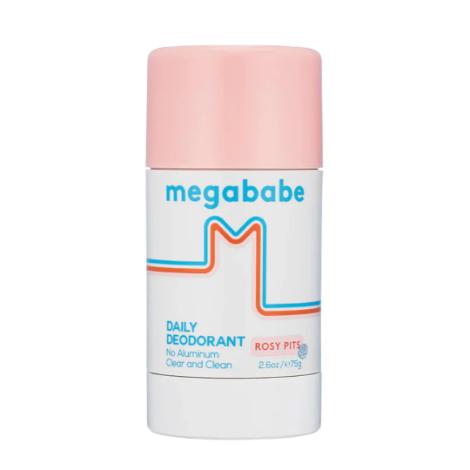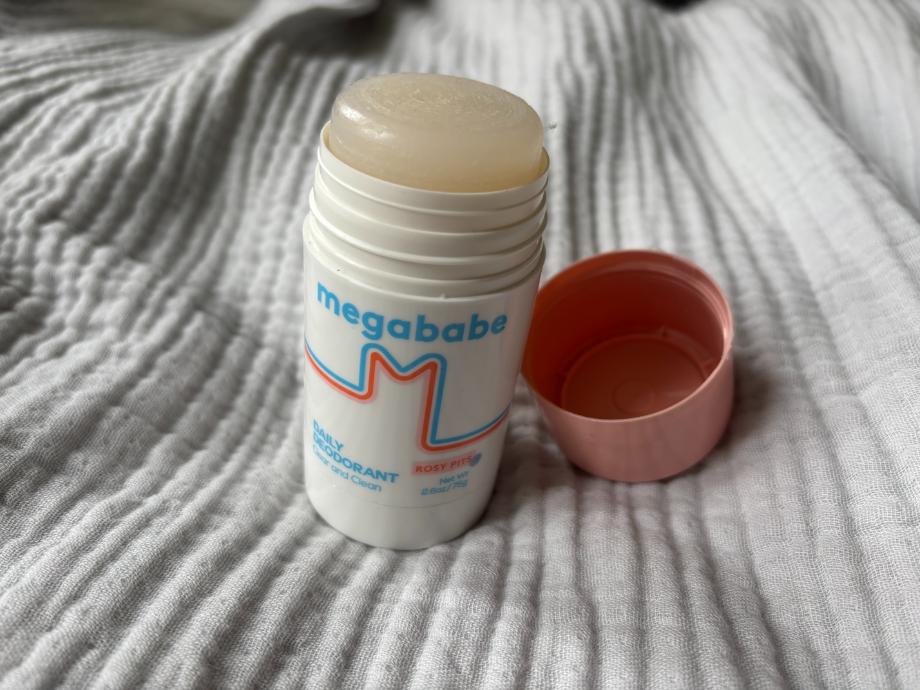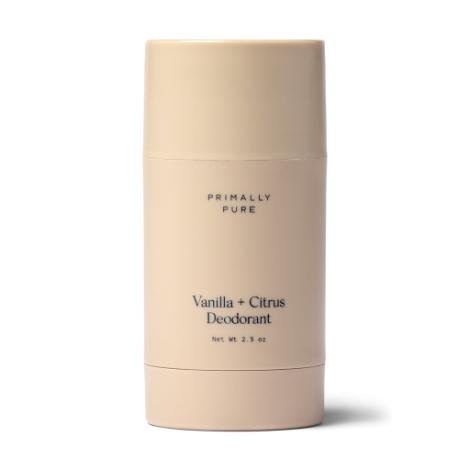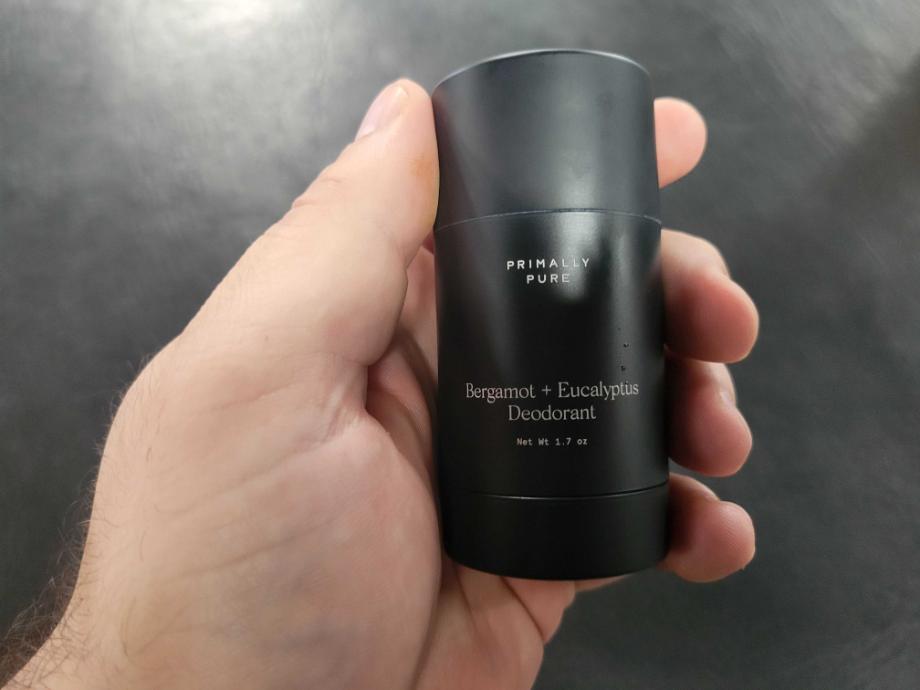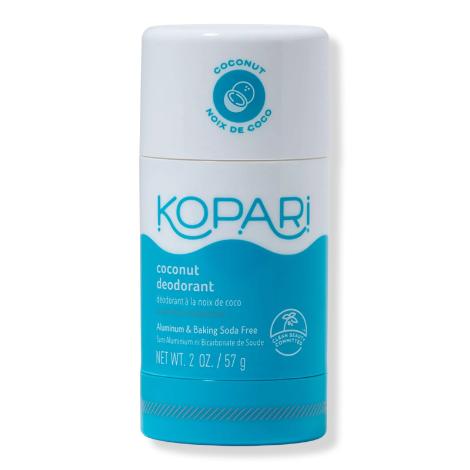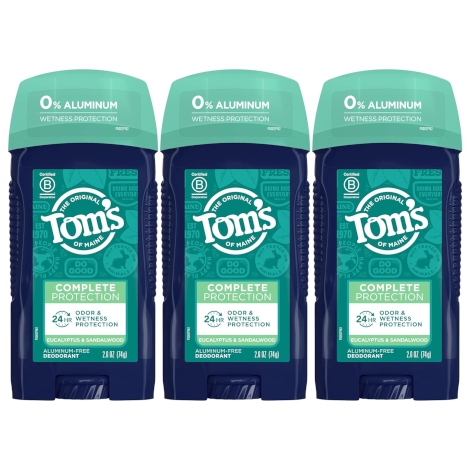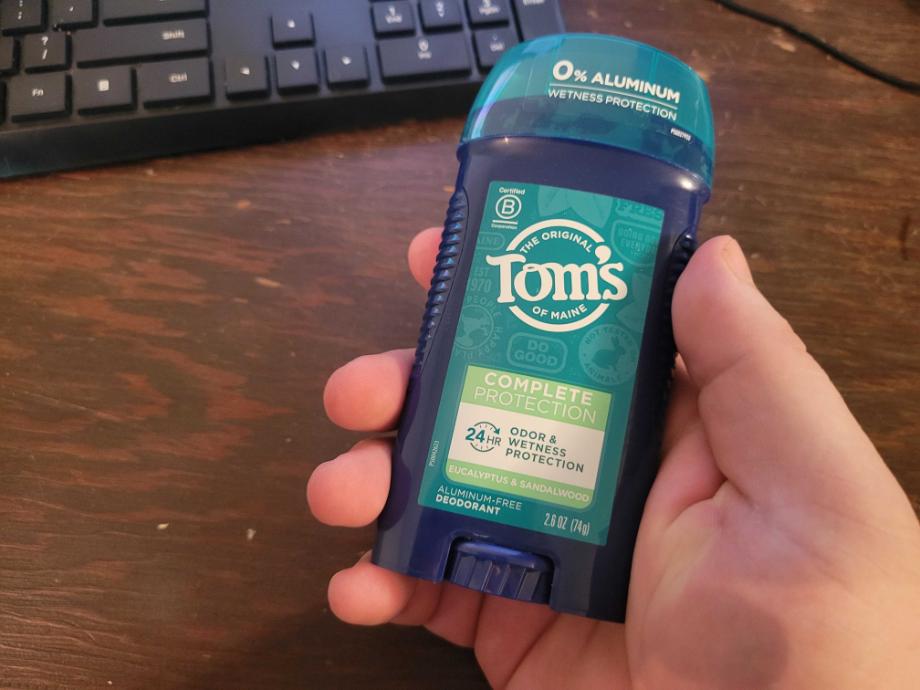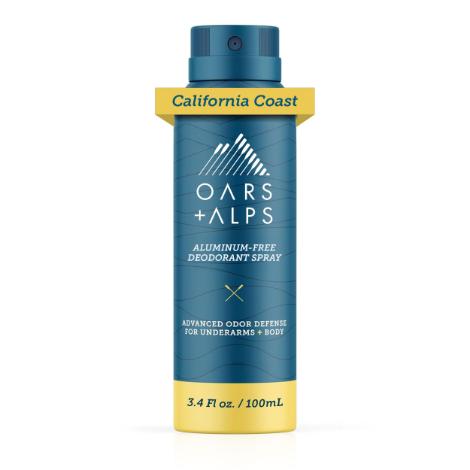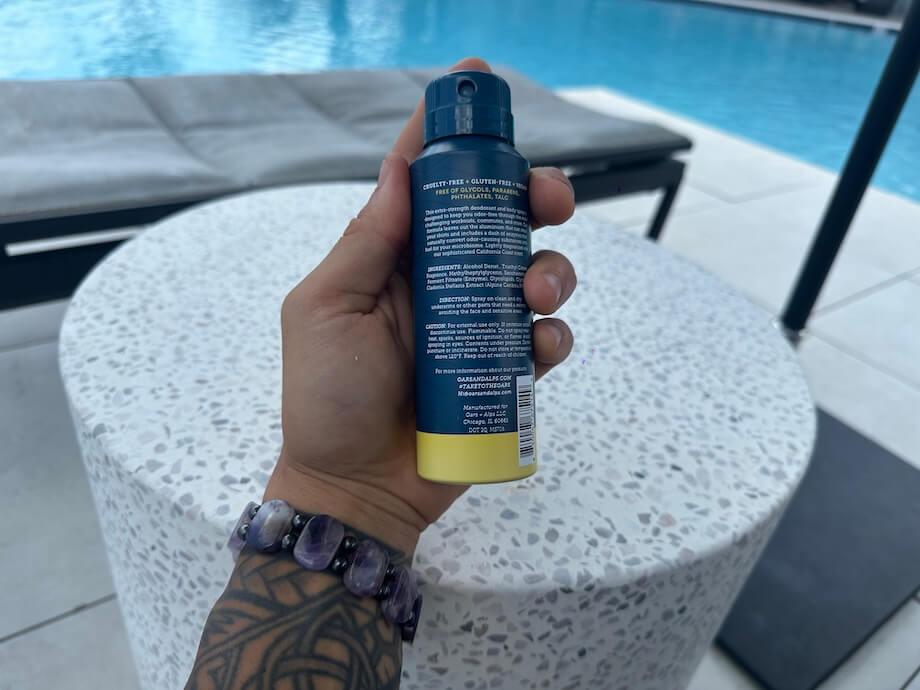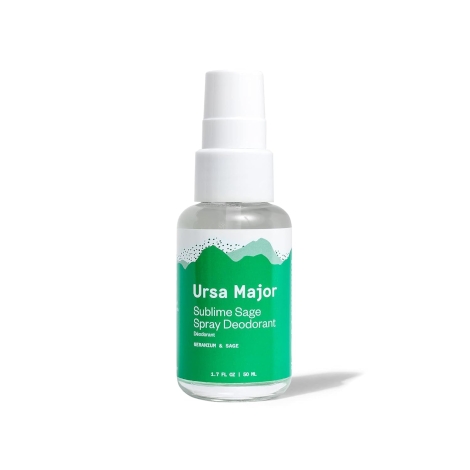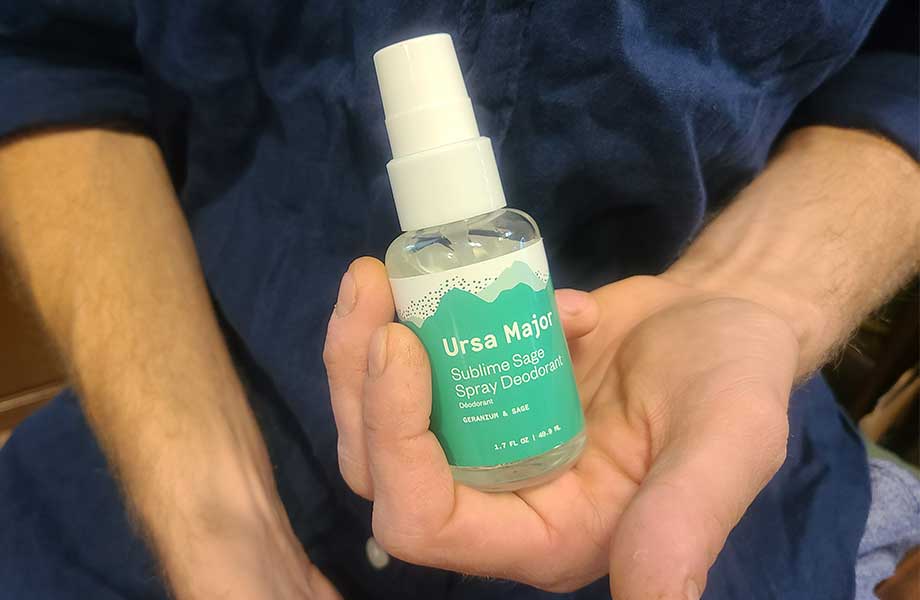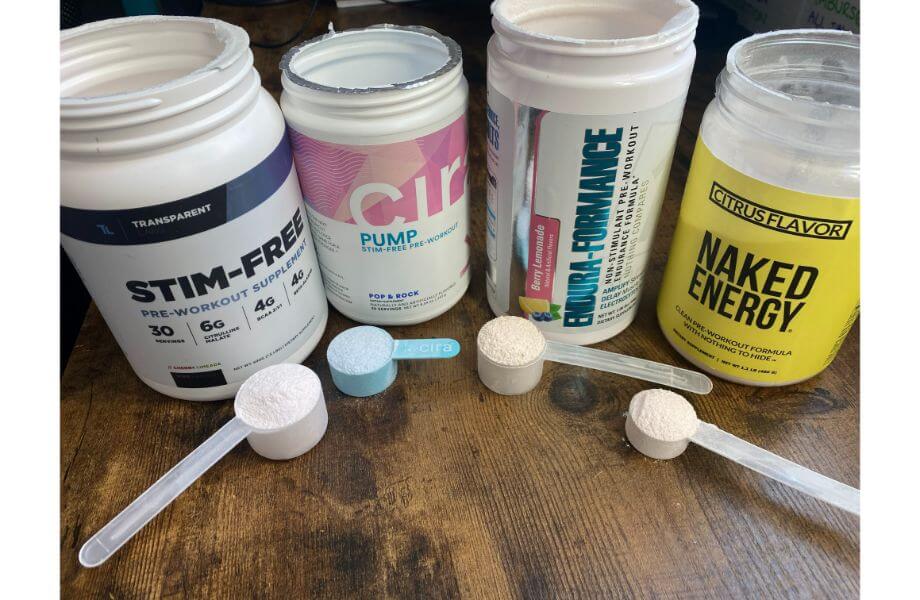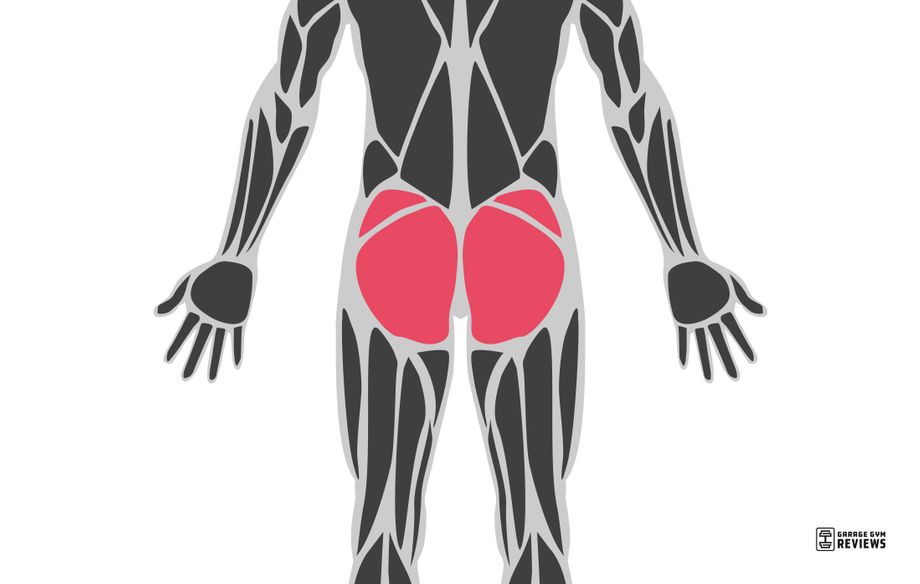Natural deodorants, also known as aluminum-free deodorants, are rising in popularity due to concerns about aluminum (a sweat blocker) possibly being a toxic metal, linked to health and wellness concerns.
I’ll be the first to say that the grounds for hating on aluminum as a topical agent is weak to say the least. Studies have shown1 that there’s very little chance of aluminum seeping into your body through skin, and there’s very little clinical evidence connecting antiperspirants to health issues.
RELATED: Best Deodorants for Men
Nevertheless, some prefer to be safe rather than sorry—or they prefer deodorants that allow for sweating—and want the best natural deodorant on the market. The expert team at Garage Gym Reviews has tested out top brands and given honest opinions on these products to help steer you in the right direction for your health and wellness needs. In picking our list of natural deodorants, we scored each cosmetic a 1 to 5 in categories according to our testing methodology, including:
- Price and value
- Ingredients and formulation
- Ease of application
- Effectiveness and protection
- Scent
11 Best Natural Deodorants
- Best Overall Natural Deodorant: Lume Whole Body Deodorant
- Best-Smelling Natural Deodorant: Fulton & Roark Calle Ocho Deodorant
- Best Natural Deodorant for Odor: Native Deodorant
- Longest-Lasting Natural Deodorant: Salt & Stone Natural Deodorant
- Best Natural Deodorant with Minimal Ingredients: Crystal Deodorant
- Best Natural Deodorant for Working Out: Megababe Rosy Pits
- Best Natural Deodorant for Sensitive Skin: Primally Pure Natural Deodorant
- Best Natural Deodorant for Women: Kopari Coconut Deodorant
- Best Budget Natural Deodorant: Tom’s of Maine Natural Deodorant
- Best Natural Deodorant for Men: Oars + Alps Aluminum-Free Deodorant Spray
- Best Stain-Free Natural Deodorant: Ursa Major Natural Deodorant Spray
Best Overall Natural Deodorant: Lume Whole Body Deodorant
Good for: People wanting a lightly scented whole body deodorant for extended odor protection
Best-Smelling Natural Deodorant: Fulton and Roark Calle Ocho Deodorant
Good for: People wanting a natural deodorant that smells fantastic
Best Natural Deodorant for Odor: Native Deodorant
Good for: Those looking for long-lasting odor protection
Longest-Lasting Natural Deodorant: Salt and Stone Natural Deodorant
Good for: People wanting a natural deodorant with a scent that lasts all day
Best Natural Deodorant with Minimal Ingredients: Crystal Mineral Deodorant
Good for: People who want simple ingredients in their cosmetic products
Best Natural Deodorant for Working Out: Megababe Rosy Pits
Good for: Staying fresh through training sessions and workouts
Best Natural Deodorant for Sensitive Skin: Primally Pure Natural Deodorant
Good for: People who want a deodorant specifically formulated for sensitive skin
Best Natural Deodorant for Women: Kopari Coconut Deodorant
Good for: Women needing an effective natural deodorant
Best Budget Natural Deodorant: Tom’s of Maine Natural Deodorant
Good for: People needing a natural deodorant at a drugstore price
Best Natural Deodorant for Men: Oars + Alps Aluminum-Free Deodorant Spray
Good for: Men who like a deodorant that’s easy to apply
Best Stain-Free Natural Deodorant: Ursa Major Natural Deodorant Spray
Good for: Those wanting a deodorant that doesn’t leave behind any residue
Other Natural Deodorants We Researched
Even though there are plenty of natural deodorants out on the market, we can’t have every option make our top list. Still, here are a few deodorants worth mentioning that we’ve researched but haven’t fully tested yet; read on for our honorable mentions:
- Schmidt’s Aluminum-Free Charcoal & Magnesium Deodorant: Charcoal is common in beauty products and the cosmetic industry for its claims of anti-aging and exfoliating properties, although there is little to no clinical evidence to support these claims3. Still, Schmidt’s deodorant is free of aluminum, parabens, and artificial fragrances.
- AKT Deodorant Balm: This unique deodorant balm comes in a balm that is massaged into the underarms—either by hand or with an applicator. Even though one tube can last up to three months, the application could be a bit on the messy side compared to a traditional deodorant stick.
- Green Beaver Bliss Antiperspirant: Most antiperspirants use aluminum (potentially a toxic substance1 when applied to skin) to prevent sweating from happening. Green Beaver claims to have formulated the first aluminum-free antiperspirant, using a proprietary technology to prevent sweating. We have yet to try this deodorant stick out, though.
How We Picked and Tested the Best Natural Deodorants
We’ve researched dozens of brands and companies to provide you with our list of the best natural deodorants. After researching, we tested over 20 particular brands, spanning from sticks and roll-ons to sprays and gels.
As the name suggests, natural or clean deodorants prioritize natural ingredients over potentially toxic ingredients, like aluminum, parabens, and phthalates. So in order to make our top picks, these deodorants had to be natural products with minimal ingredients.
We tested out these natural deodorants with daily applications and rated them between 1 and 5 in the following criteria:
- Cost: Cheap and drugstore deodorants can cost as little as $3 to $8, but natural deodorants are a bit more expensive, with many costing around $12 or more. Premium deodorants can hike the price up to $20 or $30 per stick, too.
- Scent: Just like scoring taste on the best clean protein powders, the score for a natural deodorant’s scent is fairly subjective, although we did note customer reviews as well. Many natural deodorants will incorporate essential oils into their formula for floral scents, but they can also come unscented.
- Ease of application: This was a score based on the texture of the deodorant, as well as how easily you could apply it from a stick, or whatever form the deodorant was in. We also noted any clumping or irritation.
- Protection: All-natural deodorants use ingredients to block body odor and minimize sweat, although it won’t completely prevent sweating like antiperspirants. We rated how long protection lasted, and if our experience matched the brands’ claims of protection.
- Ingredients: Traditional antiperspirants contain aluminum, so all of these picks are deodorants, which don’t prevent sweating—they just neutralize odor. We took a look at other ingredients, noting potential skin irritants like alcohols or sodium bicarbonate (baking soda).
We also incorporated customer service policies—returns, money-back guarantees, and the like—and customer reviews to flesh out our scores for these deodorants and to finalize our list of the best natural deodorants.
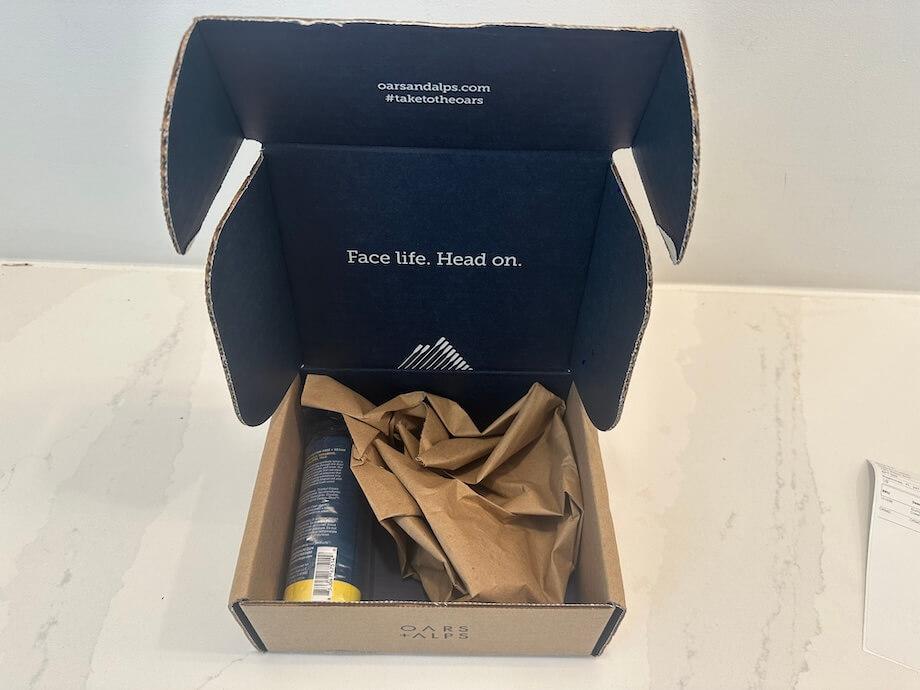
Benefits of Natural Deodorants
Skincare products like deodorants and antiperspirants serve two purposes: To block odor and to block sweat. Because antiperspirants use aluminum, we’ll just talk about the benefits of deodorants, particularly those with natural ingredients.
It’s important to note that while many group deodorants and antiperspirants together, the Food and Drug Administration4 doesn’t. While antiperspirants are considered a drug (in that it alters the body’s function of sweating), deodorants are considered a cosmetic—used for cleansing or beautification. Therefore, brands don’t have to seek FDA approval when releasing a natural deodorant.
Regardless, here are the major benefits of natural deodorants.
Odor Protection
Deodorants don’t block sweat, but they do block out major odors. Body odor doesn’t come from sweating, though, it comes from bacteria on your skin breaking down sweat particles. In the breakdown of these particles, malodorous scents are made. In particular, sweat from your apocrine glands5—primarily in the armpits, groin, and nipple area—are abundant in proteins that bacteria can break down more easily.
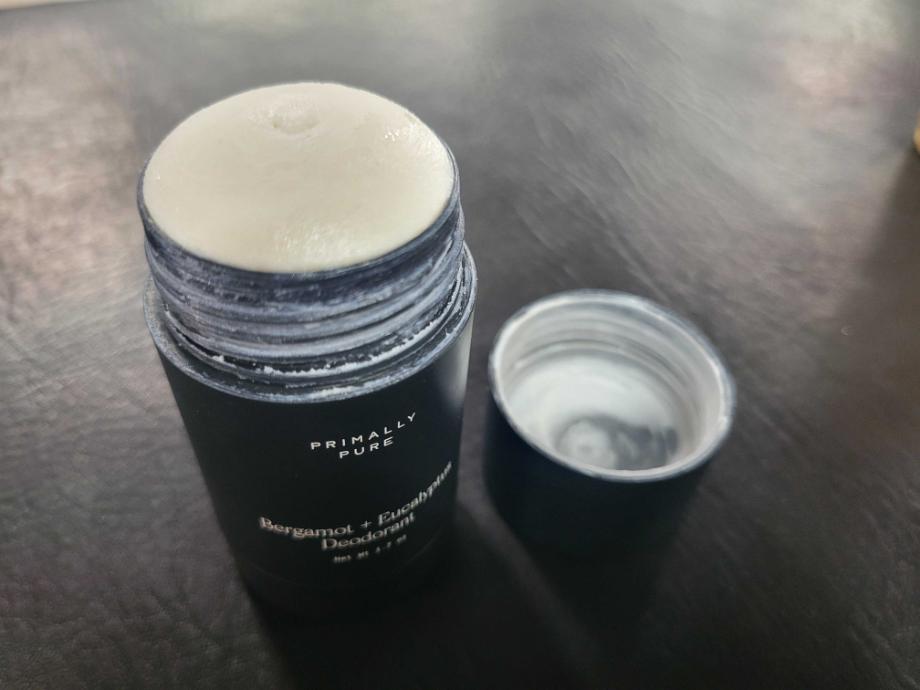
Since deodorants don’t block sweat, they work on reducing bacteria’s effectiveness at breaking down sweat and proteins. Some deodorants use anti-microbial ingredients, like alcohol or baking soda6, to absorb odor-causing bacteria (and some sweat) and to create a less desirable environment for the bacteria.
Along with neutralizing bacteria, many natural deodorants use essential oils and other fragrances to create scents that can mask odors. Common scents across natural deodorants include eucalyptus, lavender, bergamot, and peppermint.
Fewer Harmful Ingredients or Irritants
Many antiperspirant deodorant ingredients have come under scrutiny lately, with aluminum being the most questionable ingredient. Aluminum is widely regarded as toxic and carcinogenic, although it’s been shown12345 that aluminum has a very small chance of being transmitted through the skin.
Parabens—antimicrobial preservatives used in cosmetics, medicine, and food—are also controversial in use, as a 2021 review7 states that they’ve been shown to be toxic in animal and invitro studies. Natural deodorants avoid these ingredients entirely, and aim for clean, all-natural ingredients to minimize the risk of toxicity in individuals, as well as reducing skin irritation.
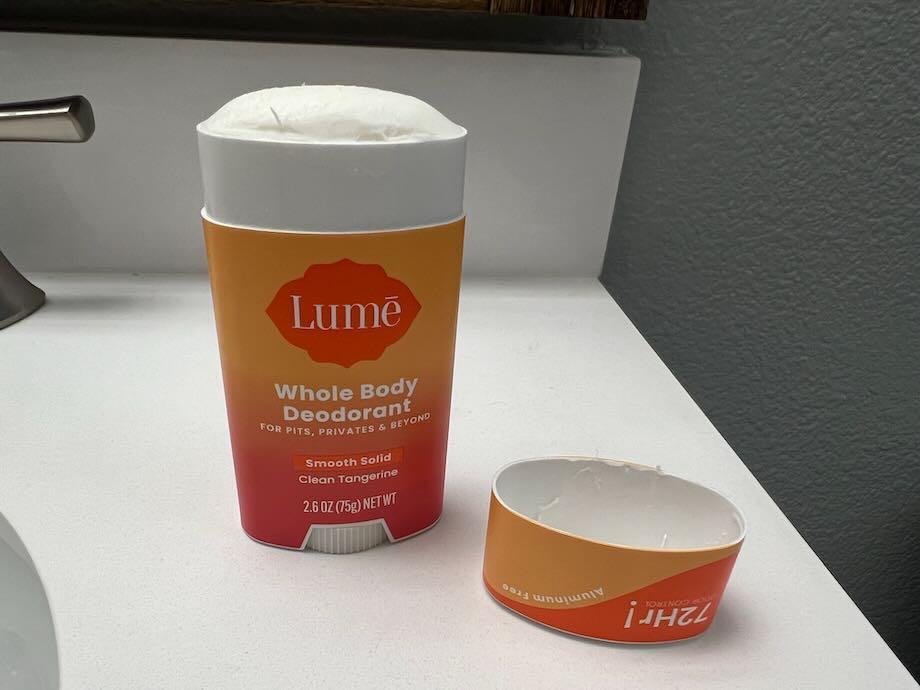
Additionally, although baking soda and alcohol like propylene glycol8 can help block odor, and are found in some natural deodorants, they can also be irritating on sensitive skin. Natural deodorants will often find baking soda-free alternatives like charcoal or arrowroot powder to help absorb odor-causing bacteria and sweat.
Buying Guide: What to Look for in Natural Deodorants
Looking for a natural deodorant to detox your underarms? We’ve got you covered; here are the things to look for—and look out for—in purchasing your next natural deodorant stick.
Ingredients
Although the FDA has deemed ingredients like parabens9 and aluminum safe for cosmetic use, many people tend to want to steer clear of these potentially toxic substances in favor of natural ingredients. Here are common ingredients you may see in natural deodorants:
- Alcohols: Alcohols are commonly used in deodorants as an emulsifier, and they contain antimicrobial properties. However, they’re also known skin irritants and allergens12345 for many users. Those with sensitive skin may want to look for an alcohol-free alternative, or use a deodorant with skin-soothing ingredients like aloe, coconut oil, or vitamin E.
- Baking soda: Sodium bicarbonate, better known as baking soda, is used in natural ingredients as an antimicrobial agent that can also help absorb some excess sweat. Like alcohol, though, it can cause some skin irritation to those with sensitive skin, especially in larger quantities.
- Essential oils: Natural deodorants will use essential oils for their scents typically, as these oils can mask odors and help fight bacteria. However, certain oils can still be irritants to some folk, so be mindful of which oils are used in the deodorant.
Regardless of the deodorant you’re looking for, be sure to read the ingredient labels on the deodorant stick, or on the website, to make sure you’re getting the right deodorant for you. Also talk with a dermatologist or other medical professional to see which deodorant may be best for you and your needs.
Form
Most deodorants come in a stick form, but natural deodorants can come in a variety of ways, including sprays, gels, balms, and roll-ons. Sprays and roll-ons may be easier to apply, while a balm might be a bit more difficult than a deodorant stick. Each form has its pros and cons, so this decision will mostly be up to your preferences or needs.
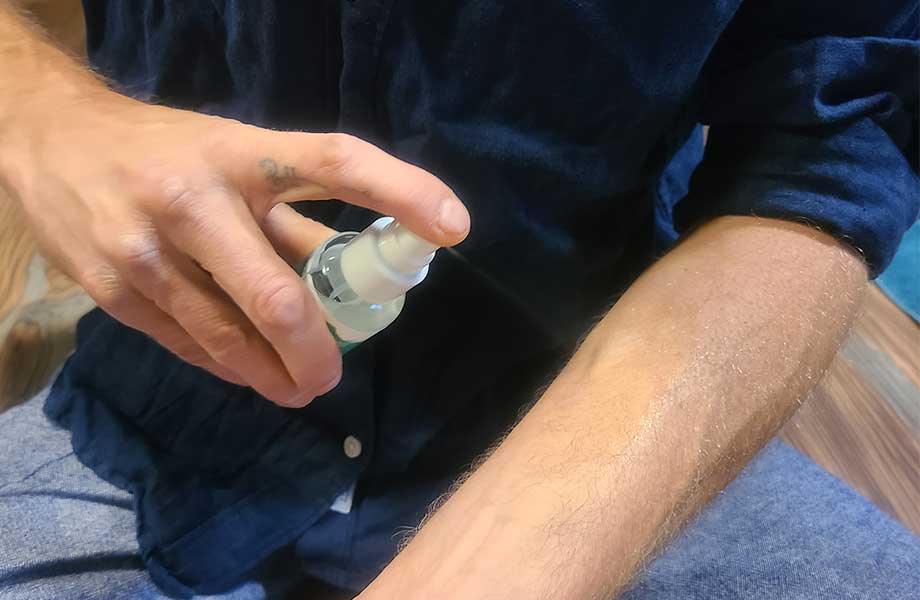
Cost
Natural deodorants can be a bit pricier than your bargain brand at the drugstore, costing over $10 for a stick half the size in some cases. Some premium or niche natural deodorants can break $20 or $30 even; whichever deodorant you choose, make sure it works within any budgetary restraints you may have.
Experts Who Contributed To This Article
FAQs About the Best Natural Deodorants
What is the best natural deodorant that actually works?
Natural deodorants can be great at neutralizing and masking body odor—although they won’t prevent sweating like traditional antiperspirants. That said, our favorite natural deodorant is Lume, which can provide up to 72 hours of odor protection and comes in a variety of scents. The deodorant is formulated to prevent odor before it starts.
While Lume also states that their deodorant is for everyone, they recently released Mando, a deodorant line for men with scents that are marketed more toward male customers.
Why do I still smell with natural deodorant?
If you’ve recently switched from an antiperspirant to a natural deodorant, you may go through a detox phase, in which the blocked sweat glands are releasing aluminum and other chemicals into your sweat and skin surface. Bacteria break down those particles, which creates odor in the process. Once the chemicals have been released, you should have less issues with body odor.
That said, deodorants inhibit bacterial growth in the armpits or sweaty areas. However, it doesn’t stop sweat from occurring. If sweat and bacteria are present, then that bacteria can still break down the sweat, which can still cause odor.
Is natural deodorant actually healthier for you?
There’s no strong evidence on whether or not natural deodorant is better or healthier than traditional antiperspirants. Typically, natural deodorants are seen as being less irritating on sensitive skin, but there are still natural ingredients to look out for, such as alcohols or baking soda. However, natural deodorants use minimal ingredients, so people love it as a less chemical-based product.
References
- Martini M. C. (2020). Déodorants et antitranspirants [Deodorants and antiperspirants]. Annales de dermatologie et de venereologie, 147(5), 387–395. https://doi.org/10.1016/j.annder.2020.01.003
- Zirwas, M. J., & Moennich, J. (2008). Antiperspirant and deodorant allergy: diagnosis and management. The Journal of clinical and aesthetic dermatology, 1(3), 38–43.
- Sanchez, N., Fayne, R., & Burroway, B. (2020). Charcoal: An ancient material with a new face. Clinics in dermatology, 38(2), 262–264. https://doi.org/10.1016/j.clindermatol.2019.07.025
- U.S. Food and Drug Administration. Cosmetics Safety Q&A: Personal Care Products. U.S. Food and Drug Administration, 2022. https://www.fda.gov/cosmetics/resources-consumers-cosmetics/cosmetics-safety-qa-personal-care-products
- Hodge BD, Sanvictores T, Brodell RT. Anatomy, Skin Sweat Glands. Treasure Island (FL): StatPearls Publishing; 2024 Jan-. https://www.ncbi.nlm.nih.gov/books/NBK482278/
- Teerasumran, P., Velliou, E., Bai, S., & Cai, Q. (2023). Deodorants and antiperspirants: New trends in their active agents and testing methods. International journal of cosmetic science, 45(4), 426–443. https://doi.org/10.1111/ics.12852
- Petric, Z., Ružić, J., & Žuntar, I. (2021). The controversies of parabens – an overview nowadays. Acta pharmaceutica (Zagreb, Croatia), 71(1), 17–32. https://doi.org/10.2478/acph-2021-0001
- Jacob, S. E., Scheman, A., & McGowan, M. A. (2018). Propylene Glycol. Dermatitis : contact, atopic, occupational, drug, 29(1), 3–5. https://doi.org/10.1097/DER.0000000000000315
- U.S. Food and Drug Administration. Parabens in Cosmetics. U.S. Food and Drug Administration, 2022. https://www.fda.gov/cosmetics/cosmetic-ingredients/parabens-cosmetics





